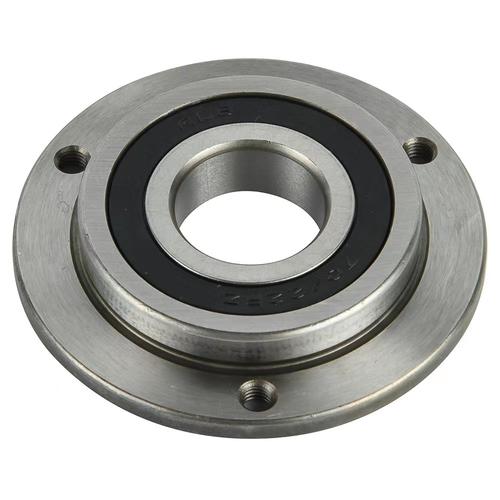Heavy Duty Industrial Bearings: A Comprehensive Guide to Types, Selection, and Maintenance
Heavy duty industrial bearings are critical components designed to withstand extreme loads, high speeds, and harsh operating conditions in machinery across industries like mining, construction, and manufacturing. Engineered for durability, these bearings ensure smooth operation, reduce friction, and prolong equipment lifespan.
Table of Contents
1. types of heavy duty bearings2. industrial bearing maintenance tips
3. best heavy duty bearings manufacturers
4. how to choose heavy duty bearings
5. applications of industrial bearings
1. Types of Heavy Duty Bearings

Heavy duty bearings come in various designs to meet specific operational demands. Ball bearings, known for handling radial and axial loads, are ideal for high-speed applications. Roller bearings, including cylindrical and tapered variants, excel in supporting heavy radial loads. Spherical roller bearings accommodate misalignment, while thrust bearings manage axial loads in vertical shafts. Needle bearings offer compact solutions for limited spaces. Each type requires precise material selection, such as chrome steel or ceramic, to resist wear and corrosion. Understanding load capacity, speed ratings, and environmental factors ensures optimal bearing performance in industrial settings.
2. Industrial Bearing Maintenance Tips
Regular maintenance is vital to extend the lifespan of heavy duty bearings. Lubrication reduces friction and prevents overheating; use grease or oil compatible with operating temperatures. Monitor vibration levels to detect early signs of misalignment or imbalance. Implement contamination control by sealing bearing housings and using clean tools during installation. Schedule routine inspections for wear, pitting, or discoloration. Proper storage in dry, temperature-controlled environments prevents pre-installation damage. Adhering to manufacturer guidelines for load limits and replacement intervals minimizes downtime and costly repairs.
3. Best Heavy Duty Bearings Manufacturers
Leading manufacturers like SKF, Timken, NSK, and NTN dominate the heavy duty bearings market. SKF offers advanced solutions with hybrid ceramic bearings for extreme conditions. Timken specializes in tapered roller bearings for mining and aerospace. NSK provides ultra-precision bearings with integrated sensors for real-time monitoring. NTN focuses on energy-efficient designs for automotive and wind turbines. Evaluate suppliers based on certifications (ISO 9001), material quality, and custom engineering support. Partnering with reputable manufacturers ensures reliability, technical expertise, and compliance with global industry standards.
4. How to Choose Heavy Duty Bearings
Selecting the right bearing involves analyzing load types (radial, axial, or combined), rotational speed, and environmental factors like temperature or chemical exposure. Calculate required dynamic and static load ratings to avoid premature failure. Consider sealing options (metal shields or rubber seals) for dust or moisture protection. Match bearing materials to operational stresses—stainless steel for corrosion resistance or polymer cages for reduced weight. Consult technical datasheets and leverage manufacturer support for application-specific recommendations. Proper sizing and alignment during installation are crucial to maximize efficiency and prevent uneven wear.
5. Applications of Industrial Bearings
Heavy duty bearings are integral to industries requiring robust performance. In mining, they support conveyor systems and crushers under abrasive conditions. Construction equipment like cranes and excavators rely on spherical roller bearings for load flexibility. Manufacturing machinery uses precision bearings for high-speed CNC operations. Wind turbines employ large-diameter bearings to handle variable wind loads. Rail and marine sectors utilize sealed bearings to endure vibrations and moisture. Emerging applications include robotics and renewable energy systems, where durability and precision are paramount.
Understanding the diverse applications, maintenance practices, and selection criteria for heavy duty industrial bearings empowers businesses to enhance operational efficiency. Whether optimizing existing machinery or sourcing components for new projects, this guide equips you with actionable insights into bearing types, top manufacturers, and industry-specific solutions. Dive deeper into each section to make informed decisions that reduce downtime and boost productivity.
In summary, heavy duty industrial bearings are indispensable for demanding environments, requiring careful selection, routine maintenance, and collaboration with trusted manufacturers. By implementing the strategies outlined here, industries can achieve longer equipment lifespans, reduced operational costs, and improved safety standards.




 13869596835
13869596835